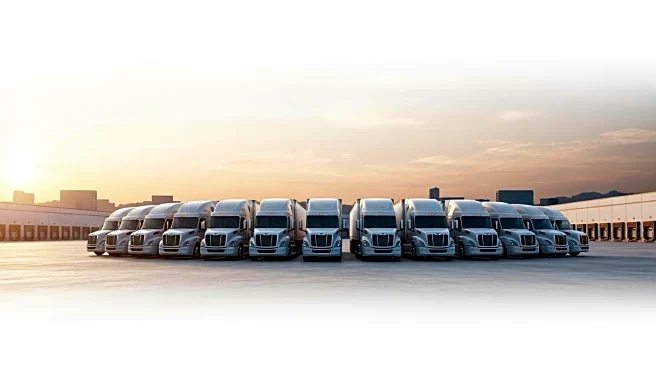What's Happening?
The for-hire trucking industry is currently experiencing significant overcapacity issues, largely due to the expansion of private fleets and a prolonged boom of owner-operators. Many owner-operators have managed to stay in business longer than anticipated, benefiting from profits made during the pandemic and banks' reluctance to repossess equipment, as they prefer to avoid realizing losses on their balance sheets. Tim Denoyer, a senior analyst at ACT Research, has highlighted these challenges and predicts a potential 'capacity crunch' in the near future.
Why It's Important?
The overcapacity in the trucking industry could have wide-ranging implications for the freight market, potentially leading to increased competition and lower freight rates. This situation may affect the profitability of trucking companies and could lead to consolidation within the industry. Additionally, the capacity crunch predicted by analysts could disrupt supply chains, impacting businesses that rely on timely and cost-effective transportation of goods. Stakeholders in the logistics and transportation sectors need to be aware of these dynamics to strategize effectively.
What's Next?
Industry experts suggest that the trucking sector may need to adapt by optimizing fleet operations and exploring new business models to mitigate the effects of overcapacity. Companies might consider investing in technology to improve efficiency and reduce costs. Furthermore, the anticipated capacity crunch could prompt regulatory changes or incentives to stabilize the market. Stakeholders will be closely monitoring these developments to adjust their strategies accordingly.










